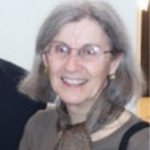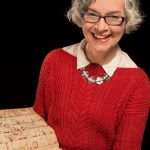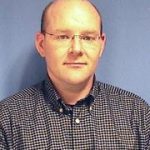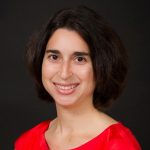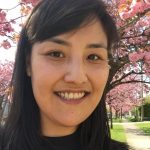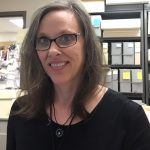Who We Are
We are a group of practitioners and scholars committed to an ethical and sustainable future of anthropological and ethnographic records.
CoPAR Co-Chairs
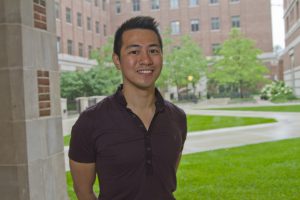
Ricardo Punzalan (PhD, University of Michigan) is Associate Professor of Archives and Digital Curation at the University of Michigan School of Information.
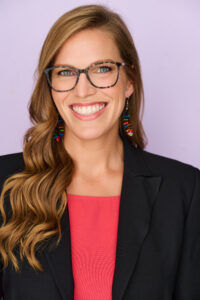
Diana Marsh (PhD, University of British Columbia) is Assistant Professor of Archives and Digital Curation at the University of Maryland’s College of Information.
CoPAR Advisory Board
Lisa Cliggett (PhD, Indiana University) is Professor and Chair of Anthropology at the University of Kentucky, and former editor (2011-2015) of the Wiley-Blackwell journal Economic Anthropology. She has carried out ethnographic fieldwork in Zambia since 1992, focusing on kinship, economy, development, and environmental change. Her earlier work examined household economy, livelihoods, migration and intergenerational relations in the Gwembe Valley. Field research from 2001-2015 took her to the border zones of the Kafue National Park, Zambia’s largest national preserve where she conducted multiple National Science Foundation (USA) funded projects. These projects include a study of migration, land tenure security and environmental change, and food and livelihood security in the context of migration. During the 2004-2007 field seasons Cliggett and colleagues ran an NSF funded field school in anthropological research methods. Most recently Cliggett has begun new NSF funded research on a road project in the Gwembe Valley through which she examines livelihood, environmental and social changes tied to this large infrastructural development.
Related to her ethnographic field research, Cliggett also received NSF funding (BCS-1157418; 2012-14) to explore ways of building a digital data archive for cultural anthropology, using the longitudinal data from the Gwembe Tonga (Zambia) Research Project (GTRP), started in the 1950s by Elizabeth Colson and Thayer Scudder.
Cliggett has published in a variety of journals including American Anthropologist, Human Organization and Human Ecology. Her books include Grains from Grass: aging, gender and famine in rural Africa 2005, Cornell University Press; Economies and Cultures: foundations of Economic Anthropology (Co-authored with Richard Wilk) 2007, Westview Press; Economies and the Transformation of Landscape (co-edited with Christopher Pool) 2008, Alta Mira Press, and Tonga Timeline: Appraising 60 years of multidisciplinary research in Zambia and Zimbabwe (co-edited with Virginia Bond), Lembani Trust Publishers/ Africa Books Collective.
Patricia Galloway joined the University of Texas at Austin School of Information’s archival program, where she is now Professor, in 2000. She teaches courses in digital archives, archival appraisal, and historical museums. From 1979 to 2000 she worked at the Mississippi Department of Archives and History, where she was an editor, historian, museum exhibit developer, and manager of archival information systems, and from 1997 to 2000 directed an NHPRC-funded project to create an electronic records program for Mississippi. Her academic qualifications include a BA in French from Millsaps College (1966); MA (1968) and PhD (1973) in Comparative Literature and PhD in Anthropology (2004), all from University of North Carolina at Chapel Hill. She was an archaeologist in Europe in the 1970s and supported what was then called humanities computing in the University of London 1977-79. She served on the Society of American Archivists Continuing Education and Professional Development committee 2005-2009, when the groundwork was prepared for SAA’s current Digital Archives Specialist certificate program, and presently serves on the SAA Acquisitions and Appraisal Steering Committee. She has also served on the Executive Board of the Society of Southwest Archivists. Her recent publications include an article on “Educating for Digital Archiving through Studio Pedagogy, Sequential Case Studies, and Reflective Practice” (2011 in Archivaria), “Archiving Digital Objects as Maintenance: Reading a Rosetta Machine” (2017 in Preservation, Digital Technology & Culture), and “Intrinsic Value” and “Principle of Respect for Original Order” in the Encyclopedia of Archival Concepts (2015), as well as articles in American Archivist, D-Lib, Library Trends, Information and Culture, and IEEE Annals of the History of Computing.
Candace S. Greene (PhD Anthropology, Oklahoma, 1985) joined the Department of Anthropology in the Smithsonian’s National Museum of Natural History in 1985. She previously worked at the Amon Carter Museum, the Haffenreffer Museum, and the Sam Noble Museum. At the Smithsonian she has worked on projects in collection preservation and access, including: planning and overseeing the move of collections to a specially designed research center; leading projects in conservation and collections care; developing large scale digitization of collections for on-line access; documenting the intellectual history of museum cataloguing; and serving as interim director of the National Anthropological Archives.
In 2018 she retired to become a Research Associate, and maintains an active research program, specializing in the study of Plains pictorial art. She is particularly interested in Native concepts regarding representation and in the recognition of individual agency in historic art and material culture. Publications include One Hundred Summers: A Kiowa Calendar Record (2009) and Silver Horn: Master Illustrator of the Kiowa (2001), and senior editor of The Year the Stars Fell: Lakota Winter Counts at the Smithsonian (2007).
In 2009 Dr. Greene founded the Summer Institute in Museum Anthropology (SIMA), a graduate training program at the Smithsonian supported by the National Science Foundation, which teaches research methods for the use of ethnographic collections [https://naturalhistory.si.edu/research/anthropology/programs/summer-institute-museum-anthropology]. She continues as a SIMA faculty member and also teaches as adjunct faculty for the Anthropology Department of George Washington University.
Greene has served as a board member of several professional organizations, including the Native American Art Studies Association and the Council for Museum Anthropology. She was honored by the latter in 2012 with the Michael Ames Award for Innovation in Museum Anthropology and again in 2018 with the Distinguished Service Award for Lifetime Achievement.
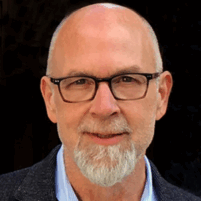
Robert Leopold is the former deputy director for research and collections at the Smithsonian Center for Folklife and Cultural Heritage, where he also served as interim director of the Ralph Rinzler Folklife Archives and Collections. Earlier, he directed the Smithsonian’s Consortium for World Cultures, the Human Studies Film Archives, and the National Anthropological Archives. During his fourteen years at the NAA, Leopold worked closely with anthropologists and their families to preserve nearly 3,000 linear feet of ethnographic fieldnotes and related materials, and also contributed his expertise to digital imaging, knowledge repatriation, and language revitalization initiatives. He has served as president of the Council for Museum Anthropology, chair of the Council for the Preservation of Anthropological Records, and as professorial lecturer in museum studies at The George Washington University. As a Fulbright Fellow, Leopold conducted ethnographic research on marriage alliance, ritual collaboration, and systems of thought in Liberia. His current interests include information ethics, ethnographic and Indigenous archives, and digital cultural heritage. Leopold holds a Ph.D. in cultural anthropology from Indiana University.
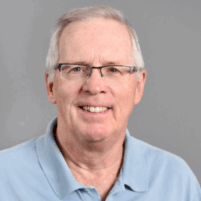
Francis Pierce-McManamon is a faculty member in the MA in Cultural Heritage Management Program at Johns Hopkins University. From 2009 to 2019, he was the Executive and Founding Director of the Center for Digital Antiquity, an organization devoted to broadening and improving the ease of access to archaeological information and to the long-term preservation of archaeological information. He also served as a Research Professor in the School of Human Evolution and Social Change at Arizona State University. Prior to joining Digital Antiquity, McManamon served as the Chief Archeologist of the National Park Service (1995–2009) and the Departmental Consulting Archeologist of the Department of the Interior (1991–2009). During the course of his career, Dr. McManamon has developed special expertise in and familiarity with cultural heritage management; Heritage Resource Management, CRM as practiced in the United States; the management of digital cultural resource data; and the identification, evaluation, public interpretation preservation, protection, and treatment of cultural heritage and resources.

Mark Turin (PhD, Linguistics, Leiden University, 2006) is an anthropologist, linguist and occasional radio presenter, and an Associate Professor of Anthropology at the University of British Columbia. From 2014-2018, Dr. Turin served as Chair of the First Nations and Endangered Languages Program and from 2016-2018, as Acting Co-Director of the University’s new Institute for Critical Indigenous Studies. Before joining UBC, he served as Associate Research Scientist and the Founding Program Director of the Yale Himalaya Initiative. He continues to hold an appointment as Visiting Associate Professor at the Yale School Forestry & Environmental Studies.
Dr. Turin directs both the World Oral Literature Project, an urgent global initiative to document and make accessible endangered oral literatures before they disappear without record, and the Digital Himalaya Project which he co-founded in 2000 as a platform to make multi-media resources from the Himalayan region widely available online. Together with Sienna Craig, Dr. Turin edited Himalaya, the longest running, open access, interdisciplinary and peer-reviewed journal of Himalayan studies from 2013-2017. For over twenty years, Dr. Turin’s regional focus has been the Himalayan region (particularly Nepal, northern India and Bhutan), and more recently, the Pacific Northwest. Dr. Turin is very privileged to have had the opportunity to work in collaborative partnership with members of the Thangmi-speaking communities of eastern Nepal and Darjeeling district in India since 1996, and since 2014 with members of the Heiltsuk First Nation through a Heiltsuk Language Mobilization Partnership in which UBC is a member.
Dr. Turin writes and teaches on ethnolinguistics, language endangerment, visual anthropology, digital archives and fieldwork methodology. He is the author or co-author of four books, three travel guides, the editor of nine volumes, and he edits a series on oral literature. @markturin
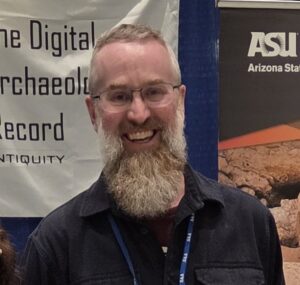
Chris Nicholson is the Director of the Center for Digital Antiquity and tDAR (the Digital Archaeological Record) in the School for Human Evolution and Social Change at Arizona State University. He is interested in digital data preservation, archives and archival research, and open access platforms. His academic research focuses on paleoclimates, environmental archaeology, human paleoecology, hunter-gatherer studies, paleodemography, and landscape archaeology.
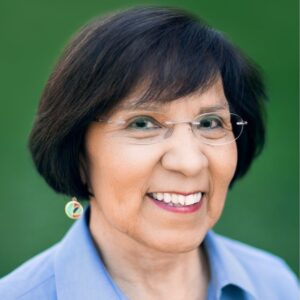
Alyce Sadongei (Kiowa/Tohono O’odham) is the Executive Director at Mission Garden, Friends of Tucson’s Birthplace. She has over thirty years of experience working with Indigenous communities on a variety of cultural projects, including libraries, archives, and museums.
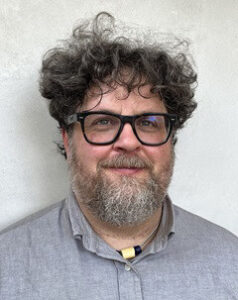
Rob Hancock (he/him/his) is Metis and is currently an Associate Professor of Anthropology at the University of Victoria in the homelands of the lək̓ʷəŋən people. Trained as a historian and historiographer of anthropology with a strong focus on archival materials, his research has focused on the history of Canadian anthropology and on American anthropology since the Second World War. His current project examines the roles played by Indigenous anthropologists in the emergence of American Indian Studies as a discipline in the 1960s and 1970s.
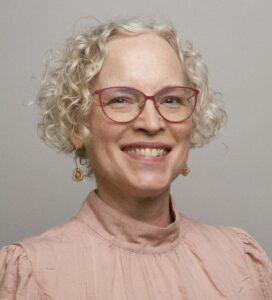
Susan Smythe Kung, PhD, is a documentary linguist, a digital archivist, and the lead creator of Archiving for the Future: Simple Steps for Archiving Language Documentation Collections. As Coordinator of the Archive of the Indigenous Languages of Latin America at the University of Texas at Austin and board member of the Digital Endangered Languages and Musics Archives Network, she has been resolutely dedicated to formulating and promoting best practices for the organization, archiving, citation, and ethical sharing of language documentation for over a decade. She is excited to continue this work as a member of the CoPAR Advisory Board.
CoPAR Working Group
Dr. Andrew Asher is the Assessment Librarian at Indiana University Bloomington, where he leads the libraries’ qualitative and quantitative assessment programs, conducts research on the anthropology of information, and teaches research methods in information science. Asher’s most recent work examines search and discovery workflows of students and faculty, information fluency development, and the ethical and privacy dimensions of learning analytics data. He was a member of the recently-completed Data Doubles project research team, a three-year IMLS funded study of student perspectives of privacy issues associated with learning analytics initiatives in libraries. Asher holds a PhD in sociocultural anthropology from the University of Illinois at Urbana-Champaign, and has written and presented widely on applying ethnography and mixed-methods research in academic libraries, including the co-edited volume, College Libraries and Student Culture.
Sarah Buchanan is an Assistant Professor at the School of Information Science & Learning Technologies (iSchool) at the University of Missouri. See https://education.missouri.
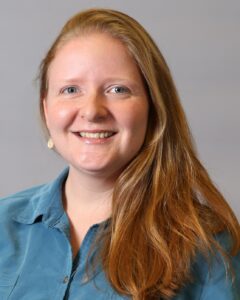
Celia Emmelhainz is the senior archivist at Harvard’s Peabody Museum of Archaeology & Ethnology. She previously led the National Anthropological Archives at the Smithsonian as well as the anthropology library at UC Berkeley. She holds master’s degrees in anthropology and in library science. Emmelhainz has conducted fieldwork in Mongolia and Kazakhstan, consulted on NSF and IMLS projects on ethnographic data management, and led workshops for librarians and researchers in Greece, Poland, and Kazakhstan. Her current focus is on scalable strategies for archiving in anthropology.
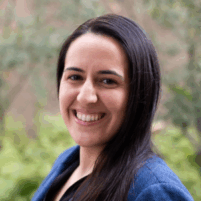
Rachel Fernandez is the Research Data Reproducibility Librarian at Arizona State University, responsible for developing and managing research data publication workflows and supporting the ASU research community with an emphasis reproducible and open science practices. Previously, she worked as the Digital Preservation Program Manager at the Center for Digital Antiquity which managed the Digital Archaeological Record (tDAR), a digital repository for archaeological data. Rachel holds a MA in Classical Archaeology from the University of Colorado, Boulder and a Master’s in Library and Information Science with a focus on digital curation from the University of Arizona.

Daniel Ginsberg is Director of Education and Professional Practice at the American Anthropological Association. Their role at the AAA includes making anthropology accessible to the general public through programs such as the Teachers Summer Workshop, Anthropology Day, and Anthropology Live virtual event series, and they were on the curatorial team for the traveling exhibition World on the Move: 250,000 Years of Human Migration. In addition to CoPAR, they have represented the AAA in collaborations with the American Academy of Arts and Sciences, American Library Association, Smithsonian Center for Folklife and Cultural Heritage, National Geographic Society, and Wiki Education Foundation. Trained as a linguistic anthropologist of education, Daniel has authored publications on professional applications of anthropology, undergraduate research, and critical pedagogy. They hold a PhD in linguistics from Georgetown University and an MA in TESOL from the School for International Training.
Dr. Robin R. R. Gray is Ts’msyen and Mikisew Cree, and an Assistant Professor of Sociology at the University of Toronto. Her research centers primarily on the politics of Indigeneity in settler colonial contexts such as Canada, USA, New Zealand and Australia. As a socio-cultural anthropologist and Indigenous studies scholar, Dr. Gray employs critical ethnographic, community-based, Indigenous and intersectional methodologies in the study and presentation of knowledge, power, culture and society. Dr. Gray’s current research projects focus on the repatriation of Ts’msyen songs from archives, and foundational issues related to the preservation, management, ownership, access and control of Indigenous cultural heritage. She is working on a book manuscript titled, Rematriation: Indigenous Law, Property and Nationhood. In it she is analyzing various forms of Indigenous repatriation to interrogate the colonial power dynamics engendered by the transformation of Indigenous cultural heritage into the property of people, states and institutions unrelated to the source community. Theoretically, it necessarily confronts the contested sites of archives, museums, law, ethnographic collecting practices, cultural appropriation, collective memory, intellectual property issues, and Indigenous rights, while it also disrupts totalizing discourses of Indigeneity, nationhood, property and heritage—including the concept of repatriation itself.
Dr. Lori Jahnke is the Librarian for Anthropology at Emory University. Her research interests include non-textual systems of information organization and communication, and the relationship of institutional structures, market dynamics, and academic norms to asymmetries in knowledge production and preservation. In support of her work in anthropology, archives, and digital collections, Lori has been awarded grants from the National Science Foundation, the National Endowment for the Humanities, the American Philosophical Society, the Field Museum of Natural History, and the Roger Thayer Stone Center for Latin American Studies. Prior to joining Emory, she was a Council on Library and Information Resources Postdoctoral Fellow at The College of Physicians of Philadelphia, and she was a Research Lead for the CLIR/DLF study of data management practices among university researchers sponsored by the Sloan Foundation. She received her PhD in biological anthropology from Tulane University.

Jesse Johnston is a Clinical Assistant Professor at the University of Michigan School of Information. He has previously served as a senior librarian for digital content at the Library of Congress, senior program officer for preservation and access at the National Endowment for the Humanities, and was an adjunct faculty member at George Mason University and the University of Maryland iSchool.
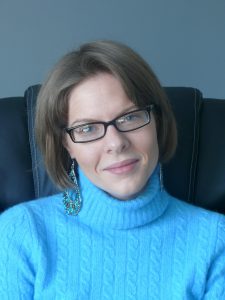
Katie Kirakosian is an archaeologist and adjunct faculty of University of Massachusetts Amherst, MA. With Heidi Bauer-Clap, her work has explored archives and archaeology and barriers to access for archaeologists. She completed her Ph.D. at the University of Massachusetts Amhearst on shell midden archaeology; in that research, she visited archives throughout Massachusetts, Rhode Island, and New York.
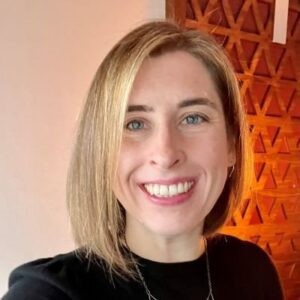
Adrianna Link is Curator of History of Science at the American Philosophical Society in Philadelphia. She holds a PhD in the history of science from Johns Hopkins University, where she specialized in the history of American anthropology and the formation of anthropological archives during the mid-20th century. She is currently finishing a book manuscript on the history of “urgent anthropology” at the Smithsonian Institution. Beyond this work, she serves as a co-chair of the History of Science Society’s CALM (Collections, Archives, Libraries, and Museums) Caucus, and is a co-convener of the “Collections and Collecting” working group hosted by the Consortium for the History, Technology, and Medicine. She is also part of the editorial collective of the History of Anthropology Review.
Gina Rappaport is the Archivist for Photograph Collections and Head Archivist at the Smithsonian Institution’s National Anthropological Archives. Though not an anthropologist, Gina experienced fieldwork when accompanying her father Roy “Skip” Rappaport to Papua New Guinea in the early 1980s, and she was nurtured by the anthropological community growing up, starting with Mervyn Meggitt spiking her milk bottle with rum when she was on a crying jag. Before joining the Smithsonian in 2009, Gina was a project archivist at the National Oceanic and Atmospheric Administration’s Pribilof Project Office where she co-authored The Pribilof Islands, a Guide to Photographs and Illustrations, a publication on historical visual resources relating to the history of the Pribilof Islands and the Aleutian people that live there. Prior to this Gina worked as a project archivist for a variety of individuals and institutions, including the University of Washington, The National Park Service, and the Winthrop Group. Gina received her BA in history at the University of Washington and her MA in history and archives management from Western Washington University. Gina’s research interests orient on the integration of archival theory into practice, especially with respect to the management of photographic collections; she explored some of these concerns in her master’s thesis, Limitations and Improvements in the Archival Management of Photographs. Another area of equal interest is in working with Native communities to develop protocols for the respectful care of Native cultural heritage held in non-native institutions.
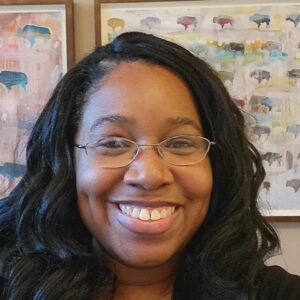
Ugoma Smoke is a Metadata Specialist at the University of Maryland, specializing in Native and Indigenous archives, linked data, and digital preservation. She holds an M.L.I.S. from Kent State University with emphases in Archives and Special Collections, Museum Studies, and Digital Preservation. Ugoma has professional experience at the University of Arkansas (Mullins Library), Northwest Arkansas Community College, and in Indigenous community archives at the Cherokee Heritage Center and Pryor Public Library, with expertise in metadata management, digital collections, and community-centered archival projects.
She serves as Chair of the SNAC Editorial Standards and Policy Working Group and on the Steering Committee for the Native American Archives Section and the Metadata Digital Objects Section of the Society of American Archivists (SAA). Through her work with CoPAR, Ugoma contributes to initiatives that prioritize Indigenous knowledge, ethical archival practices, and culturally responsive digital preservation. She is passionate about empowering underrepresented communities through training, scholarly outreach, and collaborative archival projects.
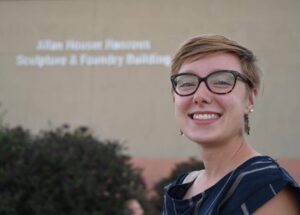
Amanda Sorensen is a PhD Candidate at the University of Maryland College of Information where she studies museum databases and their information organizational schemes through time. She is also a Sales Assistant for Axiell ALM, a tech company specializing in software for cultural heritage institutions. Previously, she has worked for the Smithsonian National Museum of the American Indian, the Indian Arts Research Center at the School for Advanced Research, and the Field Museum. She holds an MA in anthropology from the University of British Columbia.

Hannah Turner is an Assistant Professor at the University of British Columbia’s School of Information. She is a critical information studies and museum studies scholar who researches the connection between knowledge, material culture and technology. She is interested in the historical classification systems that construct museum knowledge, as well as the ethical uses of new technologies for documenting and returning museum objects. Turner was previously a Lecturer in Museum Studies at the University of Leicester, held a SSHRC Postdoctoral Fellow in the Making Culture Lab at SFU, and is the author of Cataloging Culture: Legacies of Colonialism in Museum Documentation. She received her PhD from the University of Toronto.

